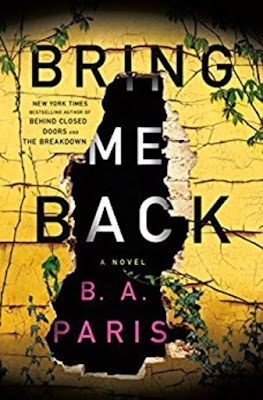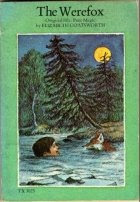71. The Kitchen Daughter by Jael McHenry
 The Kitchen Daughter by Jael McHenry (Canada) - (US)
The Kitchen Daughter by Jael McHenry (Canada) - (US)Pages: 272
Ages: 18+
Finished: Mar. 18, 2011
First Published: Apr. 12, 2011
Publisher: Gallery Books
Genre: women's fiction, food, Asperger's, magical realism
Rating: 5/5
First sentence:
Bad things come in threes.
Acquired: Received a Review Copy from the book's publicist.
Reason for Reading: The main character has Asperger's, as do I, and I make it a habit of reading books that portray Aspies.
First, I'd like to mention that this is as far from my regular type of reading as it gets. I don't *do* women's fiction; no matter what the topic I stay very, very far away from it. But when I was introduced to this book I saw the protagonist was Asperger's and I didn't really pay attention to anything else. I just wanted to read it.
I loved this book with a passion. I read it in an evening, staying up to 3:30 am in the morning to finish it; I just couldn't put it down. Ginny Selvaggio was my kindred spirit. The first chapter really introduces her to the reader focusing a lot on her quirks, foibles and what goes on in her mind. I found a lot of myself there in that first chapter, that I knew I was going along for the ride with her. Ginny has Asperger's but has never been officially diagnosed, she doesn't even know herself, which I found odd throughout most of the story seeing as her father was a doctor, well a surgeon technically, but this works itself out by the end. She has unfortunately been overprotected by her parents, her mother virtually taking care of her, leaving the house with her but at the same that same mother does manage to have a wealth of coping strategies for Ginny, insisting she go to school and also insisting she learn the niceties of social discourse. Ginny is now in her early 30s and living at home with her parents, really incapable of dealing with the day-to-day of the outside world as she's never been given a chance.
Then tragedy strikes (this is all in the first chapter, btw) and her parents are killed in a tragic accident leaving Ginny to her own defences. Except her younger sister Amanda completely takes over her mother's role and starts to arrange a new life for Ginny where she, Amanda, will now look after her. But Ginny eventually finds her voice and stands up for herself, she finds a friend, she starts venturing forth into the world. All this causes extreme stress upon her, but she has coping methods and one of them is food, not eating but cooking. Other reviewers will write about the food element of this book which has a major role, but I am not a cook nor do I like foreign, fancy foods, in fact the only recipe that interested my was the hard boiled egg (LOL). So I'll leave that to other reviewers. But thinking about food and cooking are calming forces on Ginny. This is when she realizes that she can bring back ghosts of people. If she follows a recipe of someone dead in their own handwriting they will appear in her kitchen for a short time and Ginny starts talking to these ghosts to unravel a deeply hidden family secret.
I found the story utterly charming! The ghost part was fun, this magical realism added another layer to the story and as a fan of magical realism it probably added to my enjoyment of a "women's fiction" book. The story of how Ginny tentatively makes a friend was interesting to watch and the fact that it was a member of the opposite sex is telling as well. I, myself, do not relate to women very well and find it much easier to talk to men than women. The story of two sisters, is wonderful, and realistic. Both are trying to please, worried about each other, offended by the other's behaviour and have a major falling out in this time of stressful need when they should be supporting each other.
But most importantly, to me, is the portrayal of Asperger's syndrome in a female. I think Ms. McHenry has done a fine job, especially considering she has no personal experience and received all her information through research from some renowned writers on the topic and through the Asperger's network online. I found Ginny entirely believable and a fine voice for the community of aspies in the real world. Personally I found many similarities between Ginny and myself: the use of the closet as a place to get away from it all, the many obsessions, not being able to look people in the eye, not liking to be touched (for me it's just my head/face) but I do need a personal space of an arm's width around me, not seeing the purpose of social chit-chat, performing social niceties because they are expected not because they have a logical reason.
Ginny learns to accept who she is an aspie, as we all do at some point, and begins a process of asserting herself and living with herself, as she is. The book has a positive portrayal of Asperger's and one thing I really appreciated was when she went to see the psychiatrist this was her final discourse with Ginny:
"Everybody struggles with this stuff, you know. With social discomfort and grief and fitting in. People with syndromes, people with disorders, people with diagnoses and without. People who would be classified as neurotypical. Idiots and geniuses, maids and doctors. Nobody's got it all figured out."
"Not even you?"
"Not even me."
"So ... it doesn't actually matter whether I have it at all?"
"I didn't say that," she says. "But you want my personal opinion? It matters a lot less than some people think it does."
Well done, highly recommended read for an insight into Asperger's in an adult just learning she has a "syndrome".


Nicola, I'm so pleased to read your review of this book. I've read several others and, as you surmised, most of them dealt with the food, the grief, the sister relationship, or the ghosts. If you were pleased with the portrayal of Ginny, then I'm definitely going to read the book. Thanks for sharing your personal insights with us!
ReplyDeleteNicola, I can hardly begin to tell you how thrilled I am that this book was one you enjoyed and that it dealt with Asperger's in such a realistic and positive way. Thank you so much for reviewing The Kitchen Daughter; you've added a wonderful dimension to the group of reviews on the tour and I so appreciate that!
ReplyDeleteNicola, I just found your blog from the Mailbox Monday post. I have been interested in reading this book and had no idea that the main character has Asperger's as the reviews I have read have not mentioned this. Your review from your own personal experience of having Asperger's is high praise! I want to read this book even more now after reading your wonderful review. I am an Occupational Therapist and work in the schools and many of my students have Aspergers. Also, I have family members with Aspergers and understand it on a personal level. Kudos for such an honest and heartfelt review.
ReplyDeletePrior to reading this, I wasn't aware the central character had Asperger's (I try really hard not to read reviews by others of a book that I'm going to review), but I quickly recognized what was going on with her (my son is also in the spectrum; his re-diagnosis is likely to be Asperger's). I liked it quite a lot; hated her sister "Demanda", who didn't take Ginny into consideration at all. I loved Ginny's development, and the recipes and spirits were a nice extra touch.
ReplyDelete